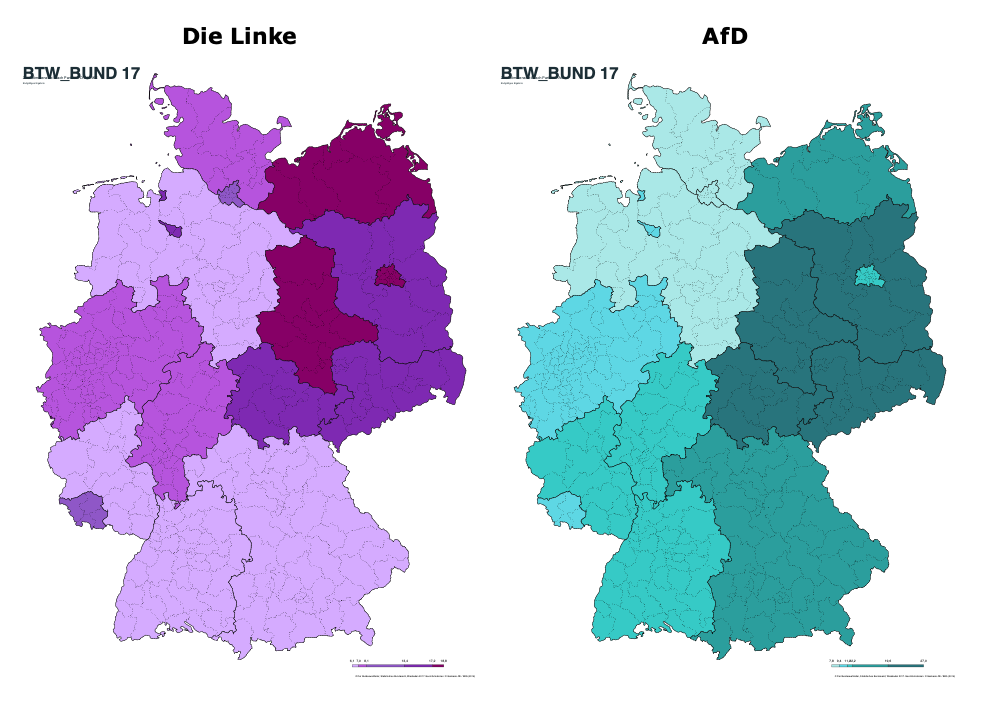Ostalgie
I believe that in much of Eastern Europe (as well as in East Germany) the rise of populist parties and the decline of democracy is to a large extent due to the experiences the peoples of these countries made after the fall of communism.
I am a free-market liberal and a strong believer in globalisation, but when the former Warsaw Pact countries became democracies, the West really screwed up. Based on an unfettered belief in free markets, deregulation and privatization, economic advisers to Eastern European governments (many of which were educated at the University of Chicago, by the way) advocated for a rapid transformation of these economies towards the Western model. Government-owned businesses were privatised, and the new owners did, what had to be done, namely drastically reduce the number of employees and improve productivity. The problem is that at the same time, the social safety nets of these countries were dismantled because they were deemed to be unaffordable and too generous to generate the right incentives for people to seek work.
Unfortunately, when an economy goes through such a massive change, a lack of a social safety net reduces economic dynamism even further instead of providing an incentive to go out and look for a job. We have learned in the Great Depression that in times of massive economic decline it is not only impossible to find a job, but any attempt at starting your own business or creating other forms of income become futile because society overall has not enough money to buy anything and everyone is just struggling to survive. This is why in extreme situations like the Great Depression or during the recent lockdown it is cheaper and better for the economy if the government guarantees jobs or dramatically increases its social safety net. The reason is that if many people lose their jobs, it becomes more expensive for the government to pay for their unemployment benefits, tax revenues decline, and consumption in the economy overall declines rapidly, creating a death spiral that leads to even more unemployment.
The problem is that these extreme economic hardships have a lasting impression on the people affected by it. Most importantly, they shape people’s opinions about politics and the economy for a very long time and reduce trust in democracy and free markets.
In Germany, the extreme parties on the left (Die Linke) and the right (Alternative für Deutschland, AfD) are far more successful in former East Germany than they are in the West. The election results of the last general election in Germany look as if the wall had never come down.
Election results of the last general election in Germany 2017

Source: Bundeswahlleiter
In Germany, there used to be even a trend for the nostalgia of the good old days of socialism in East Germany called “Ostalgie”. And let’s admit it, for many people the days before the wall came down were indeed better than the time afterward when they lost their job and their dignity.
A new study amongst Russians shows that similar nostalgia exists there as well. And this nostalgia for the former Soviet Union fuels the authoritarian regime of Vladimir Putin. When Russians who were of working age around the fall of Communism were asked 20 years later in 2006 about their opinions on democracy and private enterprise, their views were quite different from the views of people in the West. Only one in four people thought that a market economy was preferable to other economic systems, only one in three thought that democracy was preferable to other political systems and less than half thought that privatised businesses should remain in the hands of current owners. Let that last one sink in: There was a majority of Russians in favour of re-nationalising businesses that had been privatised in the past.
Views of Russians on democracy and private enterprise

Source: Pyle (2020).
All of these views have enormous importance for investors today because if we don’t watch out, the current deep economic crisis can lead to a similar resurgence of antidemocratic sentiment and a massive backlash against private enterprise. In the UK, the rise of the Corbyn Labour Party has given us a taste of what we could expect if this backlash gains momentum in the wake of this crisis. And given this prospect, I have to say that the bailouts, job protection measures, and loan guarantees that governments have engaged in over the last six months or so don’t look that expensive at all. It is definitely money well spent.



